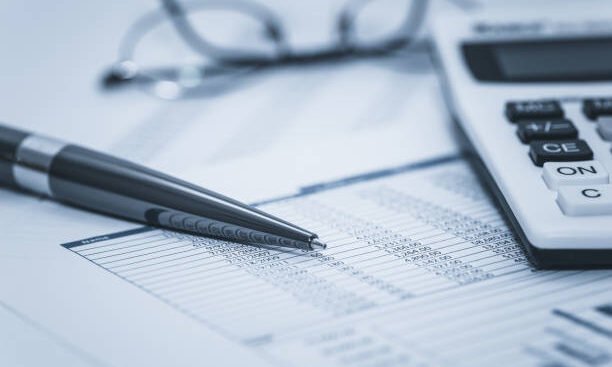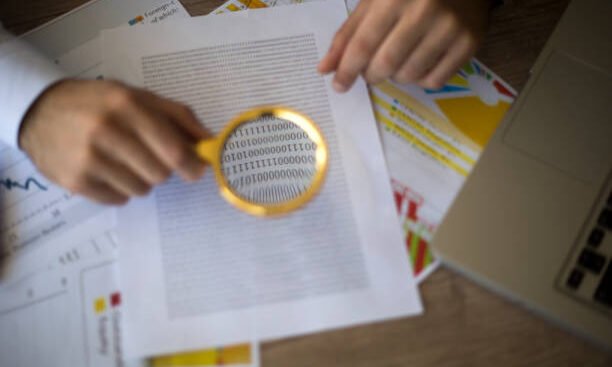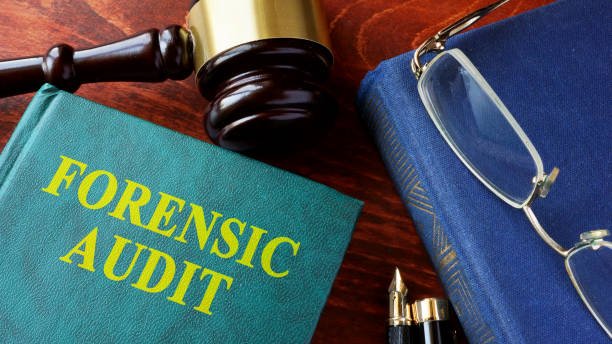In today’s rapidly changing financial landscape, fraud can have devastating effects on businesses, individuals, and entire industries. Financial fraud, in particular, can go unnoticed for extended periods, draining resources and undermining trust. However, there is a powerful solution that can help organizations detect, prevent, and resolve fraud: the forensic accounting audit. If you’re looking to secure your financial future and protect your assets, understanding how forensic accounting audits and fraud stoppers work is crucial.
Understanding Forensic Accounting Audits
A forensic accounting audit is a specialized examination of a company’s financial records with the intent of uncovering fraud, mismanagement, or other illegal financial activities. Unlike standard audits, forensic accounting audits delve deeper into the financial data, analyzing transactions, tracing assets, and uncovering discrepancies that could indicate fraudulent activity. These audits are used not only to detect fraud but also to provide evidence that can be used in court proceedings, should legal action be necessary.
Forensic accountants combine accounting skills with investigative techniques, often working closely with law enforcement and legal teams. Their expertise is essential in tracking down hidden financial activities that could otherwise go unnoticed by traditional accounting methods. Forensic accounting audits are critical in industries where large amounts of money are handled, such as banking, real estate, insurance, and government organizations.
Fraud Stoppers: The Key to Preventing Financial Fraud
Fraud stoppers are strategies, tools, and techniques used to prevent, detect, and resolve fraudulent activities within organizations. They are designed to create a robust framework that minimizes the opportunity for fraud to occur, protecting companies from financial harm. A forensic accounting audit is one of the most effective fraud stoppers available, but it is often part of a larger fraud prevention strategy that includes internal controls, employee training, and software solutions.
Some of the most common fraud stoppers include:
- Internal Controls: These are procedures put in place to safeguard assets, ensure accurate financial reporting, and prevent fraud. Internal controls can include segregating duties (ensuring no one person has control over all aspects of a financial transaction), implementing approval processes for transactions, and conducting regular reconciliations.
- Fraud Detection Software: Advances in technology have led to the development of sophisticated software that can detect fraudulent patterns and anomalies in financial data. These systems can flag unusual transactions, helping forensic accountants and internal auditors identify potential fraud before it becomes a serious issue.
- Whistleblower Programs: Encouraging employees to report suspicious activities is a crucial element of fraud prevention. Whistleblower programs provide anonymous reporting channels for employees to report fraud without fear of retaliation.
- Employee Training and Awareness: Educating employees about fraud and the company’s fraud prevention policies is vital. When employees understand the consequences of fraudulent behavior and are aware of the signs of fraud, they are more likely to act in the best interest of the company.
- Regular Forensic Audits: As mentioned earlier, forensic audits are powerful fraud stoppers. Regular forensic accounting audits help identify fraudulent activities early, making it easier to take corrective action before significant financial damage occurs.
By implementing a combination of these fraud stoppers, companies can significantly reduce the risk of financial fraud and protect their bottom line. However, to be most effective, these strategies need to be executed by trained professionals who can analyze financial data, uncover irregularities, and implement preventive measures.
How Forensic Accounting Audits Can Uncover Fraud
The forensic accounting audit process involves several key steps, each designed to expose fraudulent activities. Here’s how forensic accountants work to uncover fraud:
- Data Collection and Analysis: Forensic accountants begin by gathering all financial records, including accounting statements, transaction histories, and tax documents. They meticulously analyze these records, looking for discrepancies, patterns, or anomalies that could indicate fraudulent activity.
- Tracing Assets: Forensic accountants trace assets to determine their origins and destinations. This is especially useful when investigating hidden funds or embezzlement. By examining bank accounts, property records, and financial transactions, forensic accountants can uncover illicit activities that might otherwise go unnoticed.
- Interviewing Witnesses and Employees: Forensic accountants often conduct interviews with employees, managers, and other individuals who might have knowledge of fraudulent activities. These interviews can help uncover critical evidence or provide insight into how the fraud was committed.
- Creating a Timeline of Events: Once enough evidence is gathered, forensic accountants create a timeline of events, tracing the fraud back to its origins. This timeline is crucial for identifying the scope of the fraud and determining who was involved. It also serves as a key piece of evidence in any legal proceedings.
- Reporting Findings: After completing the audit, forensic accountants prepare a detailed report that outlines their findings. This report includes an analysis of the fraud, the evidence discovered, and recommendations for corrective action. If necessary, the forensic accountant may be called to testify in court to support the findings of the audit.
The forensic accounting audit process is thorough and meticulous, ensuring that no stone is left unturned when it comes to uncovering fraud. Whether it’s uncovering embezzlement, financial misreporting, or other fraudulent activities, forensic accounting audits provide the insights needed to take corrective action and protect your business from further harm.
Real-Life Examples of Fraud Stoppers in Action
The effectiveness of forensic accounting audits and fraud stoppers can be seen in numerous real-life cases. Here are just a few examples of how these tools have been used to detect and prevent fraud:
- Case of Corporate Embezzlement: In a major corporate embezzlement case, forensic accountants were brought in to investigate missing funds. The auditors traced the missing money back to an employee who had been siphoning off funds over a period of years. Thanks to the forensic accounting audit, the employee was caught, and the company was able to recover a significant portion of the stolen funds.
- Whistleblower Program Success: A large insurance company was able to uncover an internal fraud scheme thanks to an anonymous tip from an employee. The whistleblower reported suspicious claims, which prompted an investigation. Forensic accountants were brought in to analyze the claims, and it was discovered that several employees had been colluding to submit fraudulent claims. The company was able to take immediate action to stop the fraud and implement stronger fraud prevention measures.
- Fraud Detection Software in Action: A retail company implemented fraud detection software to monitor its financial transactions. The system flagged several irregularities, including suspicious refunds and duplicate payments. The forensic accountants analyzed the flagged transactions and uncovered a scheme where an employee had been processing fraudulent refunds. The software helped identify the fraud early, preventing significant financial loss.
These examples highlight the critical role that forensic accounting audits and fraud stoppers play in protecting organizations from financial harm. By combining cutting-edge technology, thorough investigative techniques, and proactive prevention measures, companies can safeguard themselves from the devastating effects of fraud.
Expert Opinions on Forensic Accounting Audits
Experts in the field of forensic accounting emphasize the importance of these audits in preventing and detecting fraud. According to John Smith, a certified forensic accountant with over 20 years of experience, “Forensic accounting audits are one of the most effective ways to uncover fraud. These audits go beyond the surface-level examination of financial records, providing a deep dive into a company’s finances. In today’s world, where financial fraud is becoming increasingly sophisticated, forensic accounting is essential.”
Jane Doe, a fraud prevention expert, adds, “Fraud stoppers are critical in today’s business environment. It’s not enough to rely on traditional audits alone. Forensic accounting audits, combined with fraud detection software and internal controls, provide a multi-layered approach to fraud prevention. When these tools are used together, they form an impenetrable barrier against financial fraud.”
Testimonials from Satisfied Clients
Our clients have seen firsthand how forensic accounting audits and fraud stoppers can protect their businesses. Here are a few testimonials from individuals who have worked with our team:
“Mortgage Audits Online helped us uncover a fraudulent scheme that had been running for years. Their forensic accounting audit was thorough and professional. We’re now implementing stronger fraud prevention measures, and we feel more confident in our financial future.” – Mark, CEO of a Real Estate Firm.
“I can’t thank Mortgage Audits Online enough for their fraud stoppers. Their team helped us identify several fraudulent transactions in our financial records. Thanks to their expertise, we were able to take swift action and avoid further damage.” – Sarah, CFO of an Insurance Company.
Protect Your Financial Future with Forensic Accounting Audits
If you’re concerned about financial fraud or want to ensure that your business is protected, a forensic accounting audit is an essential step. Our team at Mortgage Audits Online specializes in forensic accounting audits and fraud stoppers, helping businesses like yours detect and prevent fraud before it’s too late.
Contact us today at (877)-399-2995 or visit Mortgage Audits Online to learn more. Secure your financial future with confidence! Let our experts help you safeguard your assets and prevent fraud from ever threatening your success.







